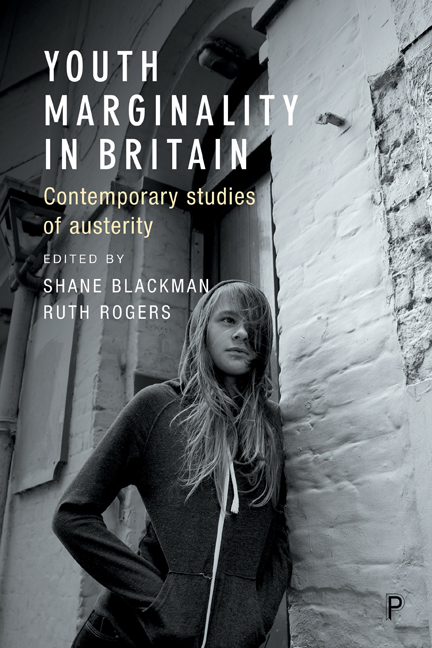two - Broken society, anti-social contracts, failing state?Rethinking youth marginality
Published online by Cambridge University Press: 05 April 2022
Summary
Introduction
Central to our analysis is a critical reinterpretation of the pervasive conservative ‘common sense’ regarding inequality and the social exclusion of substantial sections of contemporary working-class youth, and concerning crime and disorder. We begin by engaging with three core components structuring and sustaining this social exclusion of youth: the ideology of the ‘broken society’; the variety of anti-social ‘contracts’ and compliance processes to which many marginalised young people have become subject; and the failing state with which they frequently have to deal. We question each of these components of neo-liberal political ideology and the way in which they combine to blame the victims of failing neo-liberal governance for a wide range of social problems, utilising their ascribed culpability to justify tougher compliance measures, sanctions, disciplines and punishments. In contrast, we argue that it has been the pursuit of neo-liberal free market policies that has exacerbated contemporary inequalities, while fostering a powerful ideology of individualism that has generated the precarious situation of marginalised youth as collateral harm.
Our argument presents the claim that, as neo-liberalism fails youth, so too it fails as governance. Yet states do not fail, overnight, or even all at once; a failing state can still be strong and dangerous. But the more that states fail to achieve certain minima of human rights and social provisions, and the more they slip down the ‘quality of life’ league tables, then the less they reflect a collective public interest, the less legitimacy they possess and the more broken the social and cultural contract upon which they depend.
The broken society?
The ‘broken society’ discourse played a key role in the re-working of Conservative Party strategies for welfare reform, family policy, youth ‘disaffection’ and crime control (Cameron, 2008a; Driver, 2009). According to Mooney (2009), the notion of a ‘broken society’ – echoing the moralistic tone of the ‘broken windows’ analysis on crime and community decline (Wilson and Kelling, 1982) that came to dominate crime prevention thinking in the final decades of the 20th century – appeared to suggest a different way of understanding social problems in contemporary Britain.
- Type
- Chapter
- Information
- Youth Marginality in BritainContemporary Studies of Austerity, pp. 23 - 42Publisher: Bristol University PressPrint publication year: 2017

